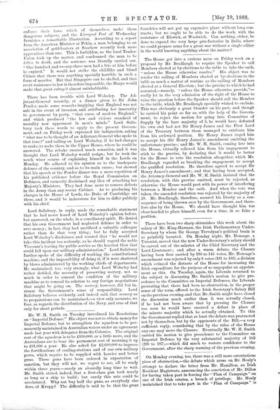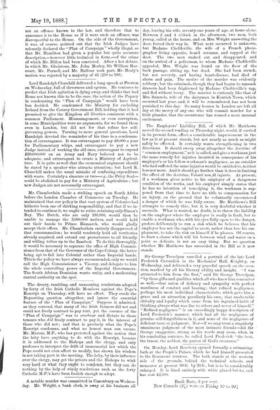On Monday evening, too, there was a still more ostentatious
piece of obstruction,—the debate which arose on Mr. Healy's attempt to declare the letter from Mr. Am/0ton, an Irish Resident Magistrate, announcing the conviction of Mr. Dillon for having taken part in forcing the "Plan of Campaign" on one of the Irish estates, a breach of privilege. Mr. Healy maintained that to take part in the "Plan of Campaign" is not an offence known to the law, and therefore that to announce it to the House as if it were such an offence, was disrespectful to the House. On the side of the Government, it was, of course, pointed out that the Irish Judges have solemnly declared the "Plan of Campaign" wholly illegal, so that Mr. Hamilton had given a popular but quite accurate description,—however little technical in form,—of the crime of which Mr. Dillon had been convicted. After a hot debate, in which Mr. Gladstone, Mr. John Morley, Sir William Har- court, Mr. Parnell, and Mr. Balfour took part, Mr. Healy's motion was rejected by a majority of 61 (250 to 189).



































 Previous page
Previous page